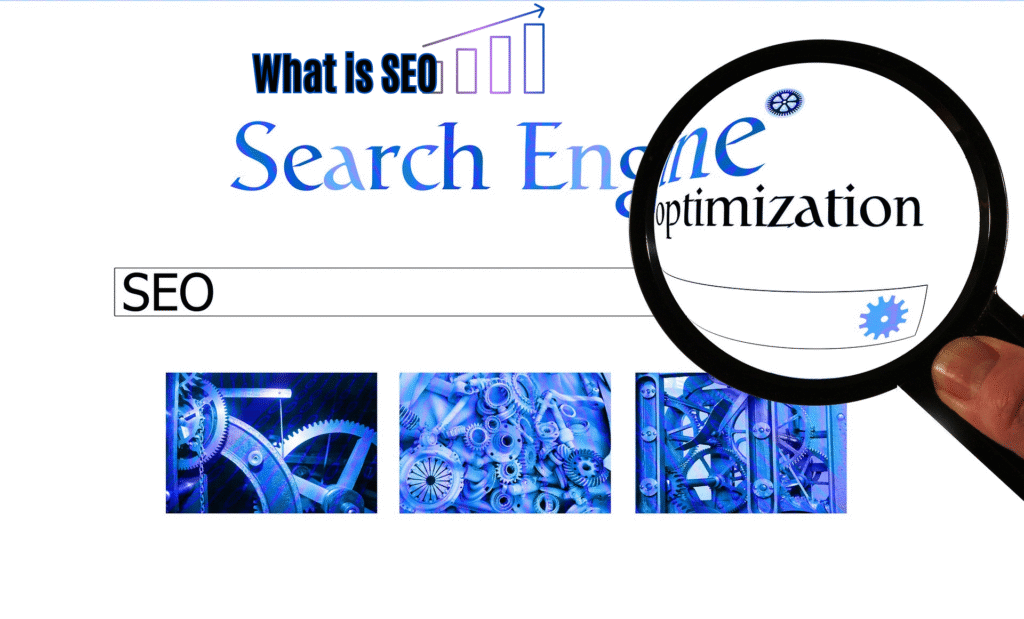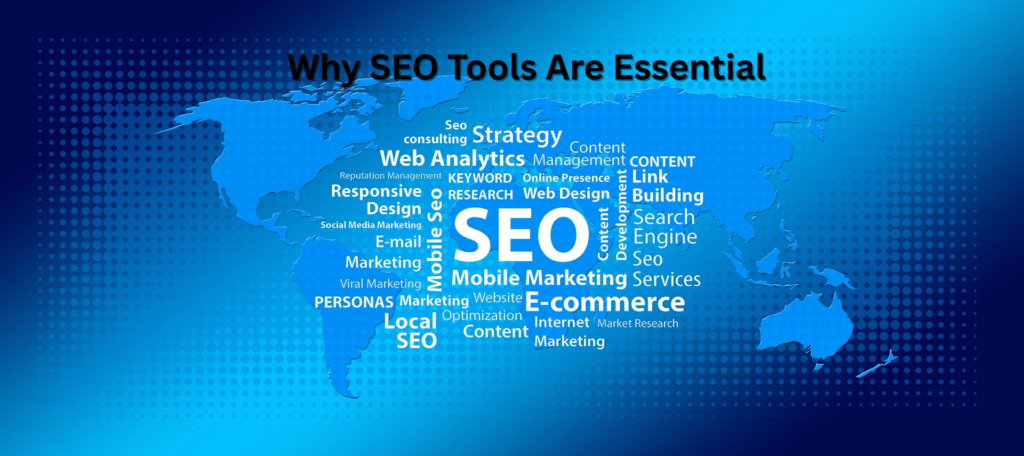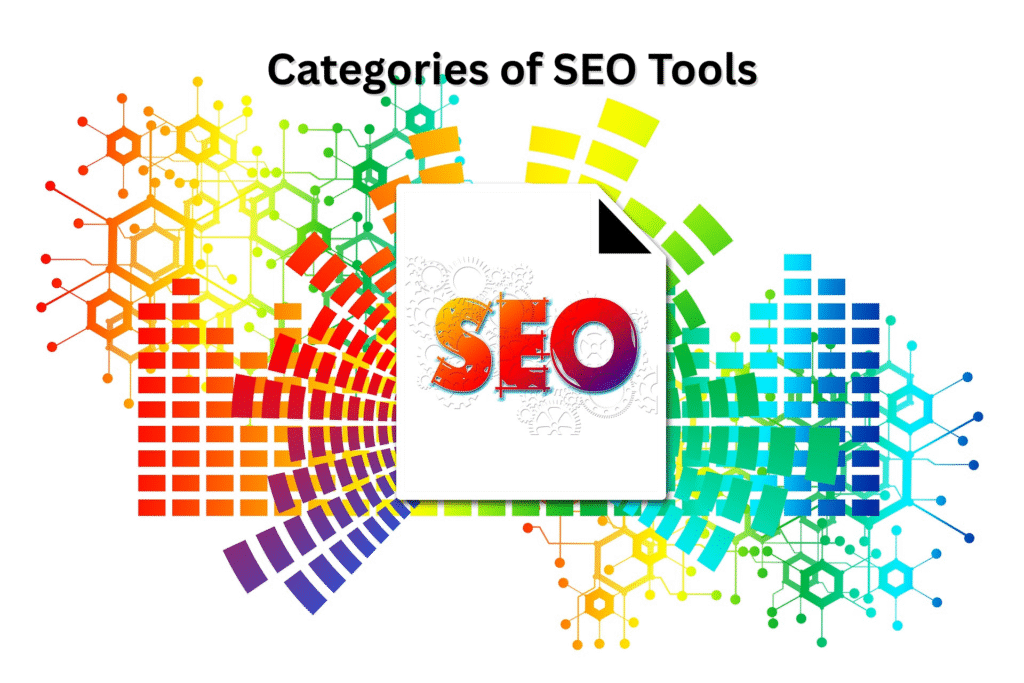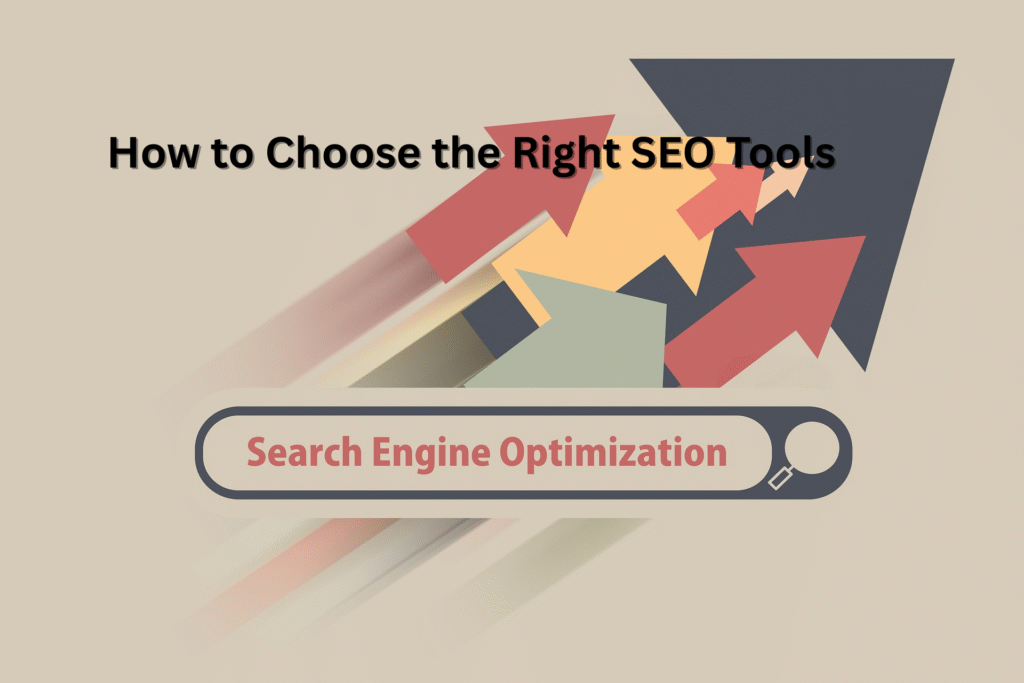Google is handling more than six trillion search queries annually in 2025, a staggering number that reflects the growing dependency on search engines in a digital-first world. The search engine results pages (SERPs) are more complex than ever, showcasing AI-generated answers, video snippets, voice search responses, and zero-click features that push organic listings further down.
In this hyper-competitive environment, simply publishing content isn’t enough. To consistently appear on page one, you need more than instinct—you need precision. That’s where the best SEO tools for higher Google rankings come into play.
Here are some of our popular post: Top 10 best website builders, Best super foods for a healthy lifestyle, the unlimited list of free productivity apps, Best freelance site to find remote jobs, top 10 productivity hacks for entrepreneurs, 10 best side hustles to make extra money online, best online courses for learning digital skills, top 10 best free coding website
SEO tools help modern marketers and business owners gain critical visibility into what matters. These tools assist in discovering untapped keyword opportunities, evaluating user search intent, diagnosing technical website issues, analyzing backlinks, monitoring ranking changes, and aligning SEO actions with broader business KPIs. In this guide, we’ll explore the best SEO tools for higher Google rankings in 2025, explain how to choose the right one for your business, and share expert-level tips to maximize their value.
What is SEO? A Brief Overview

SEO, or Search Engine Optimization, is the process of improving a website’s visibility on search engines like Google. The goal is to appear higher in search results so more people can find your content, products, or services organically, without paid ads.
It began in the mid-1990s when early search engines ranked pages based on keyword usage. Everything changed in 1998 when Google introduced PageRank, which prioritized quality content and backlinks. Over the years, major updates like Panda (2011), Penguin (2012), and BERT (2019) shifted SEO from keyword tricks to user-focused strategies. In 2023, Google’s Search Generative Experience (SGE) brought AI-driven summaries to the top of search pages, further reshaping how results are delivered.
Today, SEO works by helping search engines understand your site through optimized content, mobile-friendly design, fast loading speeds, and trusted backlinks. It’s essential for businesses and creators who want to grow online without relying solely on ads. Despite constant changes, SEO remains one of the most effective ways to build visibility, authority, and long-term web traffic.
Why SEO Tools Are Essential in 2025

Here key reasons why SEO tools are essential in 2025, based on current trends and the evolving nature of search engine optimization
#1. SEO is now context-driven, not just keyword-based. In 2025, success depends on matching content to user intent, search context, and structured data. SEO tools help uncover what your audience is really searching for and how to align your content accordingly.
#2. Google’s algorithms are more advanced than ever. With updates like RankBrain, BERT, MUM, and the Search Generative Experience (SGE), the ranking process is increasingly complex. SEO tools help decode these algorithm shifts and provide insights into how they impact your pages.
#3. Machine learning and AI dominate search results. Understanding how AI influences snippets, auto-suggestions, and rich results is nearly impossible without tools that track these changes and adapt your strategy in real-time.
#4. Raw data from platforms like GA4 and Search Console is overwhelming. SEO tools simplify complex analytics, helping you focus on key performance indicators and make smart, data-driven decisions.
#5. Efficiency is essential for SEO success. Time-consuming tasks like keyword research, content audits, and competitor analysis can now be automated. Tools save hours each week, letting small teams do the work of entire departments.
#6. Content planning has become more strategic. SEO tools suggest relevant topics, identify gaps in your content, and recommend internal linking structures. This ensures your content not only ranks but also stays relevant and competitive.
#7. SEO tools turn insights into action. Instead of guessing what to optimize, they offer step-by-step recommendations—from technical fixes to on-page improvements—making execution much easier.
#8. Your competitors are using smarter strategies. Many already rely on SEO tools to spy on rankings, discover backlink opportunities, and optimize pages faster. Without similar tools, you risk falling behind.
#9. Scaling SEO without tools leads to chaos. Whether you’re managing one site or several, tools help streamline reporting, audits, and campaign tracking so you can grow without losing control.
#10. Budgets are tighter, and results must be justified. SEO tools help prove ROI by tracking progress, measuring conversions, and showing the real impact of your efforts—something essential when every marketing dollar counts.
Categories of SEO Tools You Need to Know

To build a winning SEO strategy, it’s essential to understand the types of tools available and what each one contributes. Keyword research tools help you identify high-volume, low-competition search terms and understand the intent behind user queries. Tools like Ahrefs, Google Keyword Planner, and SEMrush Keyword Magic are popular for this.
#1. On-page SEO tools focus on optimizing your website content. They ensure your pages are structured correctly with appropriate headers, metadata, and keyword placement. Tools like Surfer SEO and Yoast SEO offer real-time content analysis and recommendations.
#2. Technical SEO tools handle the backend aspects of optimization. They uncover issues related to crawling, indexing, page speed, mobile usability, and site architecture. Popular options include Screaming Frog, DeepCrawl, and Sitebulb.
#3. Backlink analysis and outreach tools help evaluate the quality of your website’s backlink profile. These tools also assist in identifying toxic links, tracking new backlinks, and launching link-building campaigns. Examples include Ahrefs, Majestic, and BuzzStream.
#4. Rank tracking tools let you monitor your performance on SERPs across different devices, locations, and features like featured snippets. Platforms like AccuRanker and SERPWatcher excel here.
#5. All-in-one SEO platforms combine several functionalities. These tools provide an integrated experience for keyword research, technical audits, backlink analysis, and performance tracking. SEMrush, Moz Pro, and Ahrefs fall into this category.
The Best SEO Tools for Higher Google Rankings

#1. Google Search Console remains an indispensable tool for any website owner. It provides direct insight into how Google indexes your site, tracks your Core Web Vitals, and monitors issues affecting visibility. In 2025, GSC has also introduced new features that allow webmasters to see how their content appears in Search Generative Experience results.
#2. Ahrefs is another standout, offering one of the most comprehensive backlink databases on the market. Its tools for content gap analysis, competitor benchmarking, and keyword research are robust, making it ideal for agencies and enterprise-level users. Its AI-powered audit suggestions make complex technical fixes easier to implement.
#3. SEMrush is often the go-to for digital marketing teams looking for a holistic solution. It covers SEO, PPC, content marketing, and even social media management. With over 25 billion keyword suggestions and integrations for Google Ads, Shopify, and WordPress, SEMrush is perfect for businesses that need more than just SEO.
#4. Ubersuggest appeals to startups and solo entrepreneurs due to its affordability. It combines keyword data, content ideas, and site auditing into one dashboard. With features like AI-generated content outlines and weekly SEO health updates, it’s a practical choice for beginners.
#5. Moz Pro continues to be a reliable SEO tool with features like domain authority scoring, spam risk detection, and in-depth site crawls. Its user-friendly interface and resource-rich community make it especially appealing to in-house marketing teams and small business owners.
#6. Yoast SEO is a must-have for WordPress users. It provides real-time feedback on readability, SEO quality, and metadata. It also adds schema markup and breadcrumbs to improve visibility in rich snippets.
#7. Screaming Frog is a desktop-based crawler ideal for technical SEO professionals. It digs deep into site architecture, detects broken links, and visualizes crawl paths, making it invaluable for large-scale audits.
#8. Surfer SEO is a game-changer for content strategists. It analyzes the top-ranking pages for your target keyword and offers precise recommendations based on Natural Language Processing (NLP). Its automated internal linking feature helps improve content clusters and topical authority.
#9. Rank Math is another WordPress plugin, offering advanced features like instant indexing, image SEO, and integrated rank tracking. Its detailed schema support and automation capabilities make it a strong alternative to Yoast.
#10. AnswerThePublic is ideal for marketers looking to expand their keyword strategy with question-based and conversational search terms. Its visualizations help identify long-tail opportunities and guide content planning.
How to Choose the Right SEO Tools for Your Business

Selecting the best SEO tool for higher Google rankings requires a deep understanding of your business goals. Are you aiming for more organic traffic, improving conversion rates, or fixing technical problems? Define your objectives first. If you’re using WordPress, plugins like Yoast or Rank Math may suit you best. Shopify users may prefer SEMrush for its e-commerce integration.
Budget is another key factor. If you’re just starting, leverage free tools like Google Search Console or affordable options like Ubersuggest. As you scale, investing in platforms like SEMrush or Ahrefs could bring greater ROI. Consider whether the tool integrates well with your tech stack, whether it supports team collaboration, and how much learning support it offers. Moz and SEMrush, for example, provide extensive training materials, webinars, and community support.
To get the most out of your SEO stack, go beyond passive usage. Combine insights from multiple tools. For example, use Google Search Console to understand current performance, Ahrefs for keyword and backlink insights, and Surfer SEO to fine-tune your content. Maintain a change log to document what optimizations you implement and monitor what works over time.
Set up automated alerts and scheduled reports to stay updated on performance trends, new backlinks, and potential issues. Stay on top of Google’s algorithm updates. Many SEO tools roll out new features in response to these changes—adopting them early can give you a competitive edge. Finally, benchmark your competitors every quarter. Track their traffic, backlinks, and content strategy to keep your SEO plan agile and competitive.
Conclusion: the best SEO tool for higher Google rankings
SEO in 2025 demands smarter strategies, faster execution, and real-time insights. The best SEO tools for higher Google rankings are not just optional add-ons—they are core components of your digital marketing engine.
Here are some of our popular post: Top 10 best website builders, Best super foods for a healthy lifestyle, the unlimited list of free productivity apps, Best freelance site to find remote jobs, top 10 productivity hacks for entrepreneurs, 10 best side hustles to make extra money online, best online courses for learning digital skills, top 10 best free coding website
Whether you’re managing a personal blog, running an e-commerce business, or leading a multinational agency, the right SEO tools can uncover hidden opportunities, fix invisible issues, and guide your site toward long-term visibility. By choosing and using these tools wisely, you position your brand not just to compete, but to dominate the SERPs.


